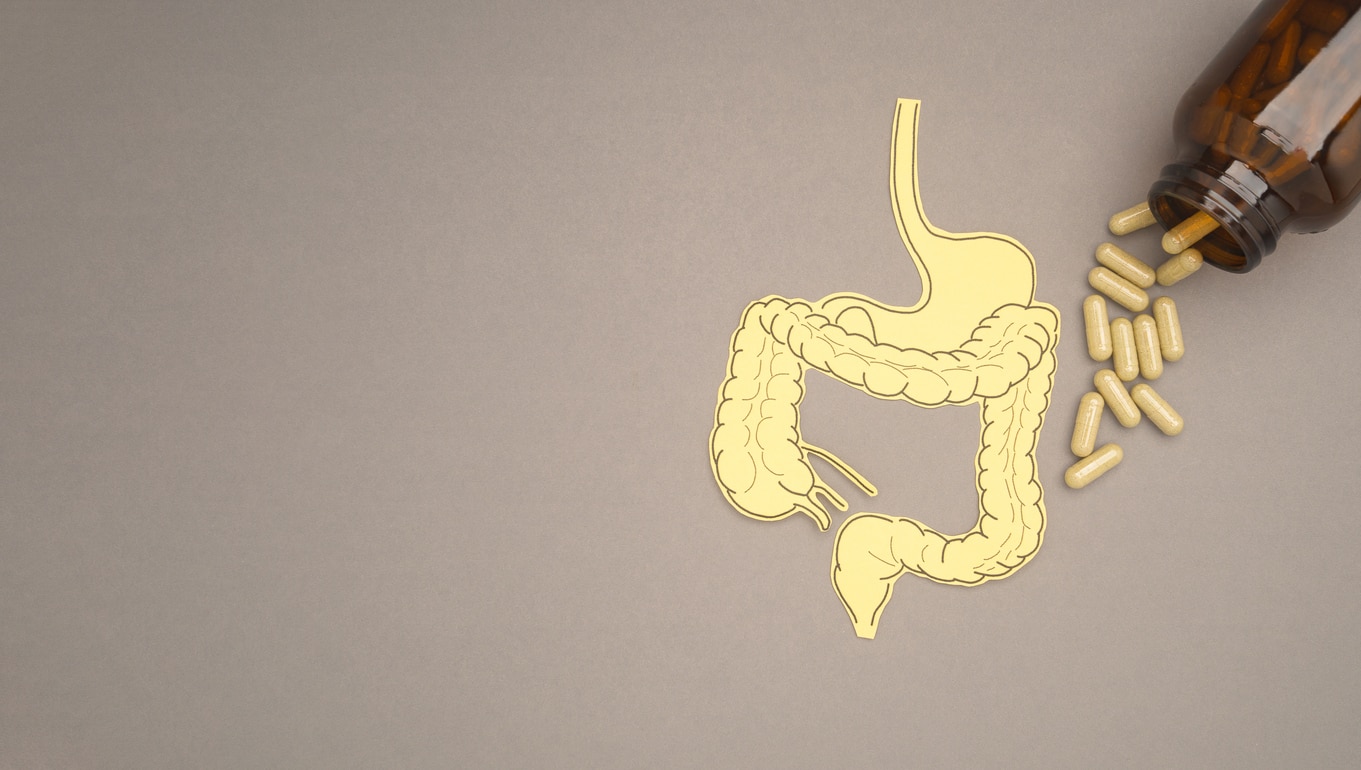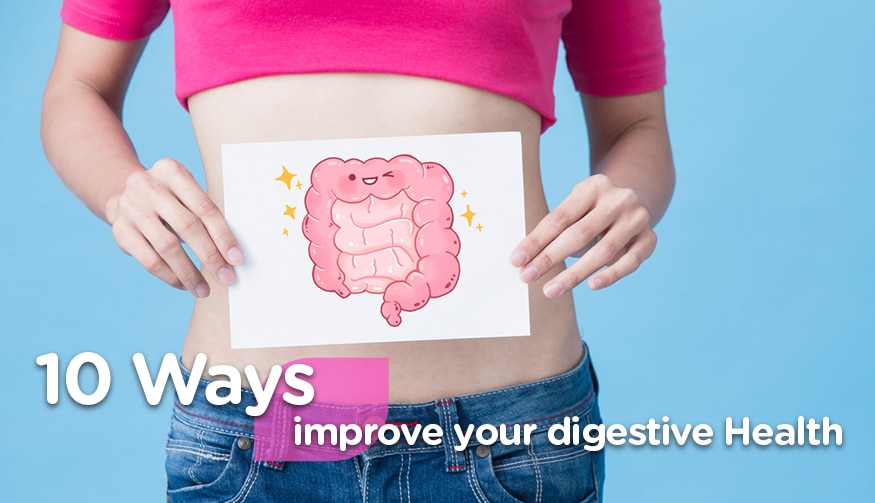Are you looking to improve your digestive health and experience greater overall well-being? Look no further! This blog post will explore practical ways to boost your digestive health. From incorporating fiber-rich foods into your diet and staying hydrated to practicing mindful eating and managing stress, we will delve into actionable tips to enhance digestion. Prepare to journey towards a healthier gut and a happier you!
When necessary, it is essential to seek advice from qualified healthcare professionals.
#1: Eat whole foods*

Eating whole foods is a fantastic way to support and improve digestive health. Whole foods like fruits, vegetables, whole grains, and lean proteins contain essential nutrients, fiber, and enzymes that aid proper digestion.
Including these foods in your diet gives your body the building blocks for a healthy gut. The fiber content in whole foods promotes regular bowel movements, prevents constipation, and supports a diverse and thriving gut microbiome. Additionally, whole foods are generally less processed and free from artificial additives, making it easier for your digestive system to break down and absorb nutrients efficiently.
#2: Eat good fats*

Good fats like avocados, nuts, and oils like olive oil can promote digestive health. They aid nutrient absorption, maintain gut lining, lubricate the digestive tract, reduce inflammation, and support gallbladder function.
But remember, moderate consumption of good fats is critical!
#3: Stay hydrated*

Drinking adequate water throughout the day can prevent constipation and promote regular bowel movements. Water also helps to soften stool, making it easier to pass. Additionally, staying hydrated supports the overall function of your digestive system, ensuring that it operates smoothly and efficiently. So, make it a habit to drink enough water daily and keep your digestive system well-hydrated for improved digestion and overall well-being.
#4: Chewing well^

Thoroughly chewing your food offers multiple benefits for digestive health. It aids in breaking down food mechanically, allowing saliva enzymes to initiate digestion. Smaller particles facilitate better nutrient absorption. Additionally, chewing well helps regulate eating pace, promoting feelings of fullness and preventing overeating.
However, excessive chewing may lead to longer mealtimes and jaw strain. Aim for an average of 32 chews per bite, adjusting for harder-to-chew foods as needed and find a balance for optimal digestion.
#5: Do regular exercise*

Regular exercise plays a crucial role in maintaining fitness and optimizing digestive health. Engaging in physical activity stimulates the muscles in your digestive system, enhancing food movement through the digestive tract. This increased motility can help alleviate common issues like constipation and bloating. Additionally, exercise promotes overall well-being and reduces stress levels, positively impacting digestion.
However, it’s important to note that gentle exercises such as Qigong, walking, and other low-impact activities may be more suitable for individuals with digestive sensitivities, as intense movements can sometimes exacerbate digestive discomfort.
#6: Focus on what you eat*

Mindful eating involves paying attention to the sensory experience of eating. It can promote digestive health by encouraging slower, thorough chewing and awareness of hunger and fullness cues. It reduces overeating and stress-related eating, fostering a positive relationship with food for optimal digestion and overall well-being.
#7: Intake of adequate amounts of supplements & vitamins for gut health~

Proper balance and sufficient nutrients through supplements and vitamins can contribute to maintaining digestive health and overall well-being. They can help fill any nutritional gaps in your diet and support the optimal functioning of your digestive system. Providing essential nutrients, supplements, and vitamins can lower the risk of deficiencies that may negatively impact digestion.
Some of best supplements and vitamins for gut health:
- Probiotics
- Prebiotics
- Omega 3 fatty acids
- Ginger
- Glutamine
- Curcumin
- Vitamin C, D
#8: Consider a healthy lifestyle*

You can support a healthy digestive system and overall well-being by adopting good and avoiding bad habits.
Bad habits that can negatively impact digestive health:
- Smoking – Contributes to acid reflux and other digestive disorders
- Excessive alcohol consumption – Irritate the digestive system
- Irregular eating patterns (e.g., skipping meals and late-night eating) – Lead to heartburn and indigestion
#9: Manage your stress and anxiety*

Stress hormones can indeed have a significant impact on digestive health. When you experience stress, your body releases hormones like cortisol and adrenaline, which can disrupt the normal functioning of your digestive system.
These hormones can reduce blood flow to the digestive organs, decrease enzyme production, and alter food movement through the intestines. As a result, you may experience symptoms such as stomachaches, indigestion, diarrhea, or constipation.
#10: Get enough sleep#

Lack of sleep can significantly impact the digestive system and overall health. Not getting enough sleep can disrupt the normal functioning of various body systems, including the digestive system, leading to gastrointestinal symptoms.
As well as the number of hours, 7–9 hours per night is ideal for most adults!
Source:
* The 11 Best Ways to Improve Your Digestion Naturally
https://www.healthline.com/nutrition/ways-to-improve-digestion
^ Chewing Your Food: Is 32 Really the Magic Number?
https://www.healthline.com/health/how-many-times-should-you-chew-your-food
~A Guide To The Best Vitamins And Supplements For Gut Health
https://www.forbes.com/health/supplements/supplements-vitamins-for-gut-health/
#12 Ways to Improve your Digestive Health
https://www.gastroconsa.com/12-ways-to-improve-your-digestive-health/










